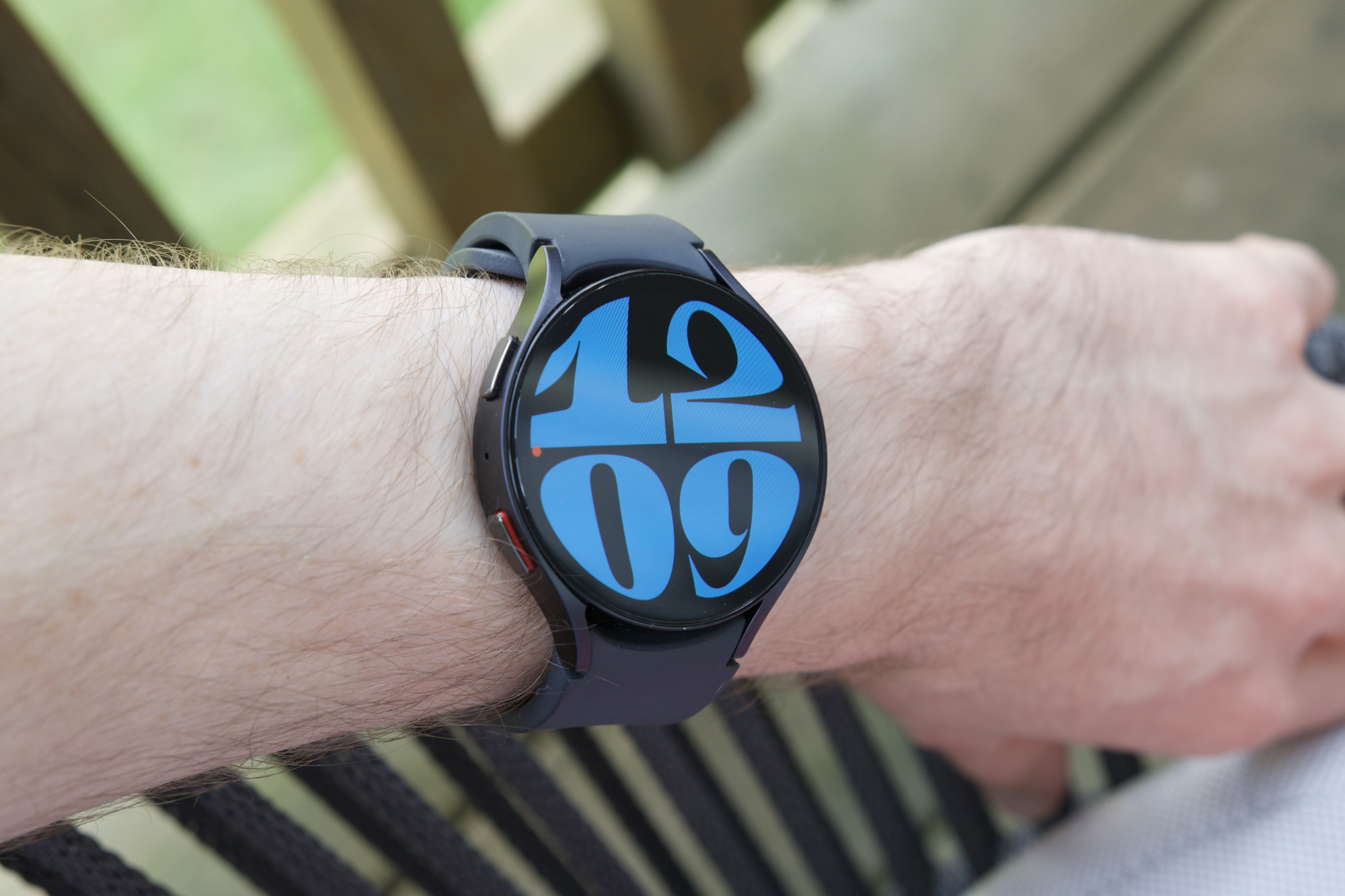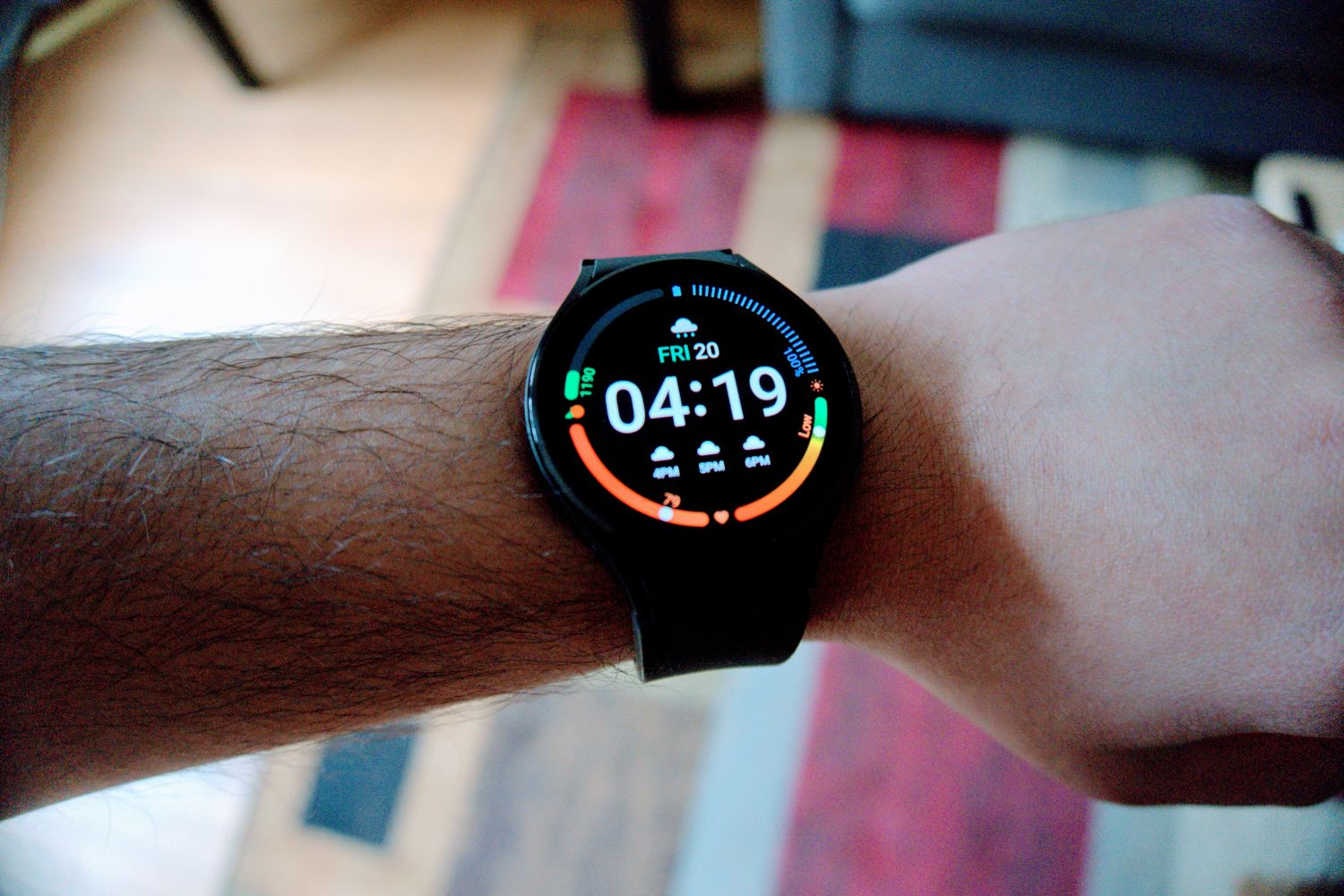
If you are a proud owner of a Samsung Galaxy Watch 4 and are thinking of upgrading your wearable tech, the newer Galaxy Watch 6 is certainly worth considering. It boasts various new and exciting features that can take your fitness journey to the next level and help you keep track of your wellness goals.
In many respects, the Galaxy Watch 6 is a significant improvement over the Galaxy Watch 4. With advanced health monitoring features, improved battery life, and a sleek design, the Galaxy Watch 6 is a great choice for anyone looking to upgrade their smartwatch. And yet, the watches are strikingly similar, so an update probably isn’t necessary for all Galaxy Watch 4 owners.
Without further delay, let’s examine the differences between the 2023 Samsung Galaxy Watch 6 and the 2021 Galaxy Watch 4.
Samsung Galaxy Watch 6 vs. Watch 4: specs
| Galaxy Watch 6 | Galaxy Watch 4 | |
| Size | 40mm and 44mm | 40mm and 44mm |
| Display | 33.27mm or 33.3mm, depending on model
432 x 432 pixels, 40mm model 480 x 480 pixels, 44mm model Sapphire Crystal Glass Super AMOLED Always On display |
30.4mm or 34.6mm, depending on the model
396 x 396 pixels, 40mm model 450 x 450 pixels, 44mm model Corning Gorilla Glass DX+ Super AMOLED |
| Material | Aluminum | Aluminum |
| Media storage | 16GB capacity | 16GB capacity |
| Colors | Graphite, Silver, Gold (40mm)
Graphite, Silver (44mm) |
Black, Pink Gold (4omm)
Black (44mm) |
| Battery | Up to 40 hours per charge | Up to 40 hours per charge |
| Dimensions and weight | 40.4 x 39.3 x 9.8mm, 25.9 g (40mm)
44.4 x 43.3 x 9.8mm, 30.3 g (44mm) |
40.4 x 39.3 x 9.8 mm, 25.9 g (40mm)
44.4 x 43.3 x 9.8mm, 30.3 g (44mm) |
| Sensors | Accelerometer
Barometer Gyro Sensor Geomagnetic Sensor Light Sensor Heart Rate Monitor Blood Oxygen Monitor Electrocardiography (ECG) Bioelectrical Impedance Analysis Temperature Sensor |
Accelerometer
Barometer Gyro Sensor Geomagnetic Sensor Light Sensor Optical Heart Rate Sensor Electrical heart sensor Bioelectrical Impedance Analysis Sensor |
| Connectivity | Bluetooth 5.3
Wi-Fi 2.4GHz and 5GHz GPS LTE |
Bluetooth 5.0
Wi-Fi 2.4GHz and 5GHz GPS LTE |
| Water rating | 5 ATM | 5 ATM |
Samsung Galaxy Watch 6 vs. Watch 4: design
The design of Samsung’s watch hasn’t changed much over the years, similar to Apple’s approach with the Apple Watch. Although the Galaxy Watch 6 and Galaxy Watch 4 are two years apart, they don’t look much different. The only notable change is the slightly smaller bezel on the newer model, resulting in a slightly larger display size of an extra 0.1 inches within the same casing.
In addition to the bezel change, the Galaxy Watch 6’s standard straps feature a quick-release button, making it easier and quicker to switch bands. The straps are also backward compatible, so you can use them on the Galaxy Watch 4.
Samsung Galaxy Watch 6 vs. Watch 4: display

There have been significant improvements made to the display of the Galaxy Watch 6, going beyond the slimmer bezels and slightly larger size. The latest model features an improved resolution and overall better brightness. While the Galaxy Watch 4 offers a brightness of up to 1,000 nits, the Galaxy Watch 6 has twice the brightness at 2,000 nits, making it much easier to read even in direct sunlight.
In addition, you will notice that the newer watch comes with a much stronger sapphire crystal display. While the Galaxy Watch 4 features Gorilla Glass DX+, which is still sturdy, it does not provide the same level of protection as sapphire crystal.
Samsung Galaxy Watch 6 vs. Watch 4: internal hardware and battery life

In terms of internals, the Galaxy Watch 6 offers some significant improvements. First, the newer model is powered by a lightning-fast and highly efficient Exynos W930 chip, making the older model’s Exynos W920 chip resemble a snail. But that’s not all, as the Galaxy Watch 6 now boasts 2GB of RAM, a nice leap from the Galaxy Watch 4’s 1.5GB.
On the battery front, the Galaxy Watch 6 comes with a 300mAh (40mm) or 425mAh (44mm) battery, while the older model has a 257mAh or 361mAh battery for the same case sizes. While both watches can last up to 40 hours between charges, the newer model can go almost two days without a recharge, giving you more time to stay connected and productive on the go.
Unfortunately, no changes have been made in the storage department. Both models offer 16GB of storage, half as much as the Apple Watch Series 9.
Samsung Galaxy Watch 6 vs. Watch 4: health and fitness

Samsung has made several improvements in the health and fitness features between the Galaxy Watch 4 and Galaxy Watch 6. However, some of these improvements were introduced on the Galaxy Watch 5. The Galaxy Watch 5 added a temperature sensor for period tracking or as an early sickness indicator. Additionally, this watch introduced a better BioActive Sensor, designed to measure sleep, body fat levels, blood-oxygen levels, and blood pressure.
The Galaxy Watch 6 has improved further on the features of its predecessor, the Watch 5. Although the sensing hardware remains the same, there are numerous enhancements. It supports various newer features, including sleep tracking, heart rate measurement, fall detection, temperature sensing, blood oxygen saturation analysis, stress level assessment, blood pressure monitoring, sweat loss measurement, ECG measurement, and more.

The Galaxy Watch 6 can detect irregular heart rhythms, which could indicate severe cardiac complications such as AFib. Additionally, the watch features a Thermo Check function that uses its infrared sensing capabilities to measure the temperature of various items, including water bodies that you are about to swim in and food, without any physical contact.
Samsung has taken this further by introducing a new Sleep Score Analysis system on the Galaxy Watch 6. This system analyzes various metrics such as sleep and awake time, physical and mental recovery, and sleep cycle.
Samsung Galaxy Watch 6 vs. Watch 4: price and availability

Samsung often offers discounts on its Galaxy Watch models. You can find these discounts through Samsung, third-party retailers, and cell carriers. The Bluetooth/Wi-Fi Galaxy Watch 6 is regularly priced at $300 for the 40mm model or $330 for the 44mm version as part of Samsung Galaxy Watch 6 deals.
If you want to add 4G LTE connectivity, the prices jump to $350 and $380, respectively. The Galaxy Watch 6 40mm model comes in graphite, silver, and gold, while the 44mm model is available in graphite and silver.
Samsung Galaxy Watch 6 vs. Watch 4: should you upgrade?

If you currently own a Galaxy Watch 4, there are several reasons why you should consider upgrading to the Galaxy Watch 6. For instance, your Galaxy Watch 4’s battery life may deteriorate depending on how frequently you use it, making an upgrade even more crucial. Furthermore, the Galaxy Watch 6 boasts several new features, including a larger and brighter screen, a larger battery, and more health and wellness features.
There’s certainly nothing “wrong” with the Galaxy Watch 4. If you have one and are happy with it, keep it and enjoy it. But if your Watch 4 is showing its age and you’re ready for an upgrade, you can’t go wrong stepping up to the Galaxy Watch 6.





